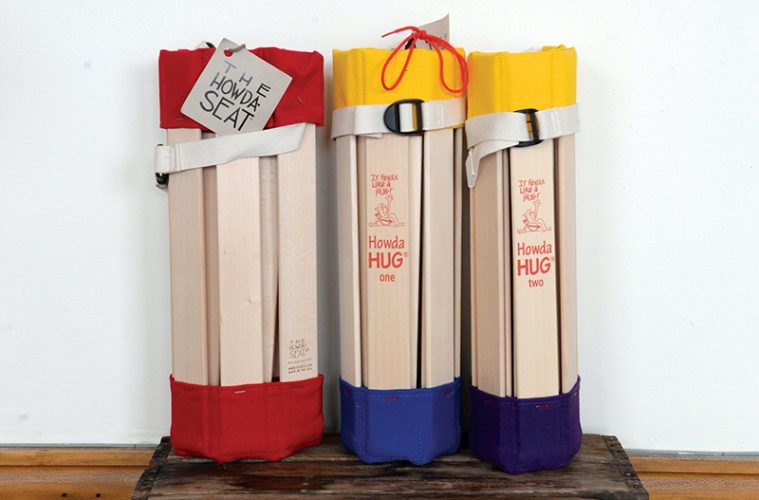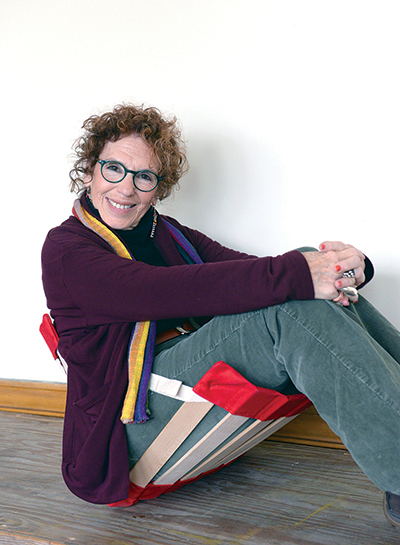By 2005, Leslie Novak had been selling portable chairs for 15 years. Her wood and canvas HowdaSeat had been well received, and featured in catalogs and high-end retail stores. But the Newburyport–based company couldn’t sustain its growth and Novak had to downsize.
“We hit some hard times,” she says. Then, she got a phone call from a mother looking for a small seat for her son. Occupational therapist Gloria Sanford-Breton had suggested the seat might help him focus more in school.
Novak was shocked. She got in touch with the therapist and set up a visit to her classroom, where several seats were being used. The moment she saw the children sitting in her chairs, paying attention to their teacher, she made a decision. “I knew that was where I was going to go,” she says. “I wasn’t leaving my company, I was reinventing it.”
Novak made some adjustments to the seat’s design, but not without seeking advice from occupational therapists, teachers, and parents. “It was extremely important not to pretend I knew what I was doing,” she says.
|
The traditional HowdaSeat consists of a seat and a back, each made of wooden slats, connected by a canvas hinge. The chairs fold and roll up for easy portability. To adapt the design for children,Novak scaled it down, creating three smaller sizes. She adjusted the straps that connect the seat and back and, most recently, added cushioning to the underside to make the seats more durable and to allow children to rock back and forth easily. She named the new version the HowdaHUG.
“And it works,” says Sanford-Breton. “The seat has been particularly effective for students with sensory processing challenges and those who simply have trouble controlling their desire to fidget.”
The way the slats wrap around the child’s body creates a deep pressure that some children find very calming, much like an infant responds to swaddling, according to Sanford-Breton. The ability to rock can both calm children and stimulate higher cognitive function. Furthermore, the seats are small and lightweight, making them easy to store or move from room to room.
The changes have proven successful for Novak’s business as well. The revamped seats are now in thousands of schools, she says, and more orders are popping up every day. Novak is considering expanding the assembly operation from Maine into Newburyport or Amesbury.
“We’re having trouble keeping up now,” she says. This fast growth is reminiscent of the company’s initial success in the early 1990s. The idea to market a portable, foldable seat came to Novak in 1988, after she pulled a seat once used to sit on elephants from a pile of old items an elderly neighbor was discarding. She started using it, and brought it on an outing to see the Boston Pops. As she carried it home that day, Novak had an epiphany: There would be demand for a modern re-creation of the seat.
She started her company in a tiny office with no windows in the Newburyport Tannery, an incubator for businesses. After two years of testing and tweaking, the young company scored its first major customer: The J. Peterman Company.
Though she has had to reinvent her company, Novak does not pine for the past. Instead, she embraces the opportunity to help children. “I just get filled up with a sense of appreciation,” she says. “There’s a feeling of tremendous reward.” howda.com


 Leslie Novak
Leslie Novak